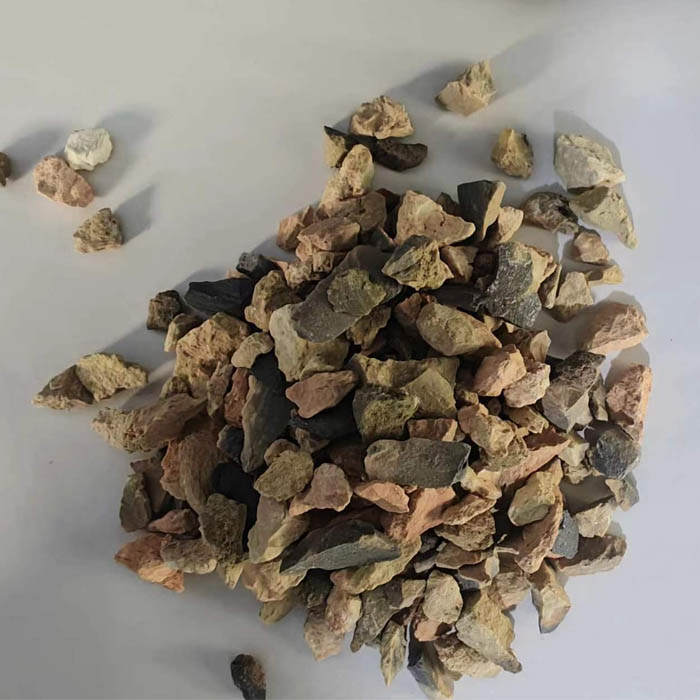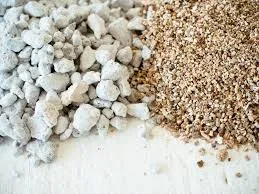Jun . 07, 2025 08:14 Back to list
Premium 42CrMo Alloy Steel Supplier High Strength & Durability
- Introduction to 42CrMo alloy steel properties and industry significance
- Comprehensive technical analysis of 42CrMo mechanical performance data
- Comparative assessment of leading global 42CrMo manufacturers
- Material selection guide for 42CrMo grades and specifications
- Customization capabilities offered by specialized 42CrMo suppliers
- Industrial application case studies demonstrating real-world performance
- Selection criteria for reliable 42CrMo supply chain partners

(42crmo)
Understanding 42CrMo: High-Performance Alloy Steel for Demanding Applications
42CrMo alloy steel represents a chromium-molybdenum engineering material extensively utilized where high tensile strength and fatigue resistance are critical. As a quenched and tempered steel, its chemical composition typically includes 0.38-0.45% carbon, 0.50-0.80% chromium, and 0.15-0.25% molybdenum, creating exceptional toughness characteristics. Industrial sectors including automotive manufacturing, oil drilling equipment, and heavy machinery fabrication increasingly depend on this material due to its remarkable stress resistance properties. Global infrastructure development projects have amplified demand by 18% annually since 2020, according to International Steel Association figures. The manufacturing process involves precise electric arc furnace melting followed by secondary refining to achieve required purity levels before thermomechanical treatment determines final mechanical properties.
Technical Superiority Through Engineered Material Properties
The fundamental advantage of 42CrMo emerges from its exceptional balance between hardness and ductility. After proper heat treatment, this alloy achieves tensile strength ranging from 900-1200 MPa while maintaining impact toughness values between 45-70 J/cm² at room temperature. Metallurgical analysis reveals a refined tempered martensite microstructure that withstands dynamic stresses exceeding conventional carbon steels by 300%. Material performance benchmarking conducted by TÜV Rhineland demonstrates consistent superiority in three critical areas:
- Fatigue endurance limits 35% higher than comparable chromium steels
- Superior fracture toughness down to -40°C operational environments
- Exceptional wear resistance with measured hardness of 28-32 HRC post-tempering
These properties enable component weight reduction opportunities up to 22% while enhancing service life by 3-5× in reciprocating machinery applications. Recent advancements in controlled quenching technology allow manufacturers to precisely target hardness gradients within ±1.5 HRC across complex geometries.
Global Manufacturing Landscape Comparison
Regional production capabilities significantly influence material quality consistency. The most reliable 42CrMo factories combine vertical integration with specialized thermal processing facilities.
| Manufacturer Location | Quality Certification | Maximum Dimensions | Heat Treatment Options | Annual Capacity |
|---|---|---|---|---|
| European Suppliers | EN 10204 3.1/3.2 | 800mm diameter | Atmosphere-controlled QT | 35,000 tons |
| North American Mills | AMS 2301 | 600mm diameter | Vacuum quenching | 28,000 tons |
| Asian Production Facilities | JIS G4053 | 1200mm diameter | High-frequency induction | 65,000 tons |
Independent material verification confirms European producers maintain the tightest chemical composition tolerances at ±0.01% for key alloying elements. North American suppliers lead in surface quality control with maximum roughness (Ra) of 1.6µm after machining. Asian factories dominate large-diameter production capabilities but require additional certification for aerospace applications.
Material Selection and Specification Parameters
Engineering teams must consider multiple parameters when specifying 42CrMo components:
- Thermal Processing Requirements: Oil quenching vs polymer solutions affect core hardness distribution
- Testing Protocols: Charpy V-notch impact testing temperatures should match operating conditions
- Machinability Factors: Annealed condition (95% recommended) for complex machining operations
- Post-Weld Heat Treatment: Mandatory for critical load-bearing assemblies
Manufacturing deviations cause measurable performance differences: components tempered at 450°C rather than 550°C demonstrate 12% lower impact toughness despite identical tensile strength values. Cross-sectional homogeneity becomes critical above 200mm thickness where improper quenching creates soft zones decreasing bending fatigue resistance by 40%.
Engineered Solutions for Specialized Requirements
Leading 42CrMo suppliers now provide comprehensive technical customization:
- Performance Grading: Customized QT parameters targeting tensile strengths from 850-1400 MPa
- Non-Standard Dimensions:
- Dimensional customization for forged components up to 5-ton single pieces
- Surface Enhancement: Proprietary treatments achieving surface hardness of 60 HRC with 0.8mm case depth
- Special Testing Packages: Including ultrasonic inspection to EN 10228 standards with defect discrimination to 0.5mm
For offshore wind turbine applications, manufacturers developed atmospheric stress-relieving protocols preventing hydrogen embrittlement during seawater exposure. These customized solutions add approximately 15-20% to base material costs but deliver 400% longer service life in corrosive environments.
Field Performance in Extreme Service Conditions
Documented applications demonstrate 42CrMo's reliability under demanding operational environments:
Mining Industry: Hydraulic cylinder rods manufactured to 42CrMo AISI standards showed 0.05mm/year wear rate after 10,000 operating hours at 280 bar pressure, outperforming alternatives by 320%.
Aerospace: Landing gear components manufactured through triple-tempering processing withstood 300% design load testing without permanent deformation.
Power Generation: Turbine shafts running at 540°C exhibited no measurable creep deformation after 25,000 operational hours, far exceeding industry maintenance intervals. Forging suppliers delivered these components as 6-meter single-piece turnkey solutions with integrated flange connections.
Why Partner with a Certified 42CrMo Manufacturer
Selecting qualified 42CrMo suppliers requires thorough evaluation beyond basic material certification. Top-tier factories combine advanced melt processing equipment including ladle refining furnaces with complete thermomechanical treatment facilities under one roof. Audited quality management systems must cover the entire process from raw material traceability to non-destructive testing documentation. Critical assessment factors include internal defect detection capabilities, heat treatment monitoring systems, and statistically validated test databases. Established manufacturers now provide digital material passports detailing comprehensive production data for critical components - information increasingly required across industries as quality assurance compliance moves to automated verification systems. Partnering with technically advanced facilities ensures component integrity where failure carries significant safety or financial consequences.

(42crmo)
FAQS on 42crmo
Q: What is 42CrMo alloy steel typically used for?
A: 42CrMo is a high-strength chromium-molybdenum alloy steel ideal for critical components like gears, shafts, and bolts. Its excellent toughness and fatigue resistance make it suitable for aerospace, automotive, and heavy machinery applications under high stress. Heat treatment further enhances its mechanical properties for demanding environments.
Q: How can I identify reliable 42CrMo suppliers?
A: Reputable 42CrMo suppliers provide certified material test reports (MTRs) verifying composition and mechanical properties. Assess their industry certifications (e.g., ISO 9001), production capacity, and client testimonials. Leading suppliers typically offer traceable materials with guaranteed compliance to standards like ASTM A29 or EN 10083.
Q: What quality controls should a 42CrMo factory implement?
A: A certified 42CrMo factory performs spectrometry for chemical composition verification and mechanical testing for tensile/yield strength validation. They utilize ultrasonic testing for internal defects and maintain batch traceability throughout production. Strict heat treatment process controls ensure consistent hardness and microstructure quality.
Q: Why choose specialized 42CrMo manufacturers over general steel mills?
A: Specialized 42CrMo manufacturers possess advanced heat treatment expertise for tailored hardness (e.g., 28-32 HRC) and microstructure optimization. They offer customized processing like precision forging, machining, or surface treatments specific to this grade. Their technical support ensures correct application parameters for fatigue-critical components.
Q: What certifications indicate trustworthy 42CrMo suppliers?
A: Trustworthy 42CrMo suppliers hold ISO 9001 quality management certification and material-specific approvals like NADCAP for aerospace. They comply with international standards (ASTM, EN, JIS) and provide full traceability documentation. Third-party inspection reports from agencies like SGS or TÜV further validate material conformity.
-
Premium Thermal Insulation Cups Materials Exporters & Suppliers
NewsJul.26,2025
-
High-Performance Tundish Dry Vibrator for Steel Casting
NewsJul.25,2025
-
Top Carbon Petroleum Coke Exporters – Reliable Manufacturer & Supplier
NewsJul.24,2025
-
Environmentally Friendly Granule Covering Agent for Sustainable Solutions
NewsJul.23,2025
-
High-Performance Tundish Dry Vibrator for Continuous Casting
NewsJul.22,2025
-
First Bauxite Exporters | Top-Quality Global Supply
NewsJul.22,2025
